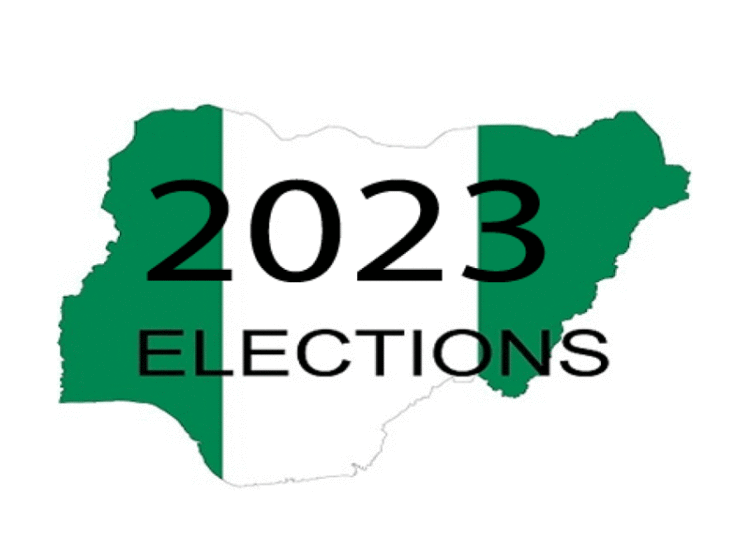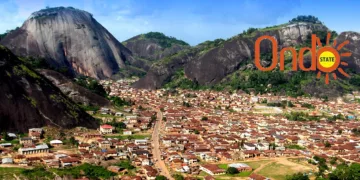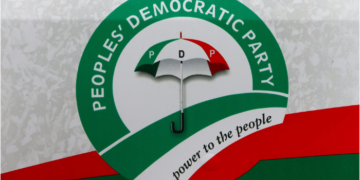As the 2023 election campaigns began, a Civil Society Organization (CSO), Yiaga Africa, has raised concern over the drop in the number of young men and women participating in the election.
In a preliminary report released by Yiaga Africabajd endorsed by the executive director, Samson Itodo, in an event held in Abuja, said 43.2% of youth candidates in the 2023 election are direct beneficiaries of the Not Too Young To Run Act.
“Of the 15,336 candidates on the ballot in the 2023 elections, 4,398 are youth candidates. 1,899 of these figures are between 25 – 30 years,” the report said while decrying the drop in the number of youths and women participating in the election.
Samson, who said Yiaga Africa will support youths candidates that are competent, accountable, and have character, added that it is better to have an old man who is competent and accountable than a youth that will block the chances of others.
“Youth candidacy records decline from 34% in the 2019 election to 28.6% in the 2023 elections. For instance, youth candidacy for the House of Representatives plunges from 27.4% in 2019 to 21.6% in 2023. Similarly, the State House of Assembly also dropped from 41.8% in 2019 to 35.6% in 2023.
“Political parties nominated more youth candidates for legislative elections at the state level than executive or national assembly seats. For instance, State Assembly elections and House of Representatives elections recorded the high level of youth candidacy. 35.6% of candidates of State Assembly are youth, 21.6% for House of Reps and only 3.7% of candidates in the Senatorial elections are youth.
“The North-west geo-political zone maintains its reputation as the zone with the highest number of youth candidates. The geographical distribution of candidates shows that the level of youth candidates in the North West is 28%, North central, 18.1%, North east, 16%, South West, 14.1%, South south 12.6% and lastly South East with 10.4% youth candidacy, “ the report said.
“Based on the ranking of political parties on youth candidacy, the African Democratic Congress (ADC) ranks 1st for nominating the highest number of youth candidates. The Labour party ranks 6th, New Nigerian People’s Party ranks 3rd, People’s Democratic Party (PDP) ranks 13th, All Progressive Congress (APC) ranks 15th.
“Poor representation of young female candidates on the list of candidates. 11% of youth candidates are female.
“With respect to the young female candidates, the ADC (62), AA (58), APM (54) have the highest number of young female candidates. The APC (9) and PDP (5) have the lowest number of young female candidates.
“Among the young candidates, 7 individuals representing 0.2% belong to persons living with disabilities in the 2023 election,” the report said adding that from a Yiaga Africa perspective, the decline in youth candidacy is attributed to the excessive cost of nomination forms, highly commercialized party primaries, substitution of candidates, and the deregistration of political parties.
“The highly monetized party primaries shrunk the political space and limited fair competition. Most young aspirants declined to pursue their political aspirations due to non-affordability of the forms and lack of resources to procure delegates. Some youth candidates were substituted after the party primaries to pacify entrenched political interests in political parties. In addition, the deregistration of political parties by INEC directly affected the number of political parties which reduced the number of candidates on the ballot. This reinforces the direct relationship between the number of parties and youth candidacy.
“While the decline in youth candidacy is evident, the level of young female candidacy is even worse. The party primaries failed to meet the test of fairness and equity and in cases where parties granted concessions to women, they were not backed by concrete steps to secure the emergence of young female candidates. This reinforces the urgency of political reforms in addition to legal and constitutional provisions to safeguard the participation of women in politics.
“The current funding model of political financing creates unfair competition and shrinks the political space to the detriment of competent leaders, youth, and women. Political finance reform is an urgent necessity to ensure the political space is accessible to all persons regardless of age, economic class, tribe, and creed. Any meaningful reform of party funding or campaign funding should deliver the following four key outcomes; first, limit the influx of unregulated money in the political process; secondly, enhance the capacity of political parties on resource mobilization and maintenance of proper account of financial transactions and assets register; thirdly, strengthen INEC’s capacity to monitor and ensure compliance with political finance regulations and; fourth explore new pathways of candidate selection that de-emphasizes the place of money and economic power over competence, capacity and character. The net effect of these outcomes will be improved safeguards for the political space, party supremacy, and candidate recruitment.
“Public perception of youth leadership affects the emergence of youth candidates in elections. Young people are perceived as inexperienced and ill-prepared for public leadership hence the limits placed on youth participation in politics, “ the report said.
To secure electoral victory for youth candidates, the report recommended that political parties should provide technical, financial and logistics support to young male and female candidates during the campaigns.
“Youth candidates will require technical support to hone political organizing skills, and improve knowledge election day operations, and legal framework for elections
“The general public are encouraged to support youth candidates by making financial donations to youth candidates with competence, character and capacity.
“Media organizations should prioritize coverage of youth candidates. Adequate airtime should be provided to young male and female candidates to provide visibility for youth candidates and improve public perception of youth candidates.
“To advance political inclusion and accountability in elections, Nigeria requires comprehensive political finance reform and reforms of the delegate recruitment and management process, “ the report added.





